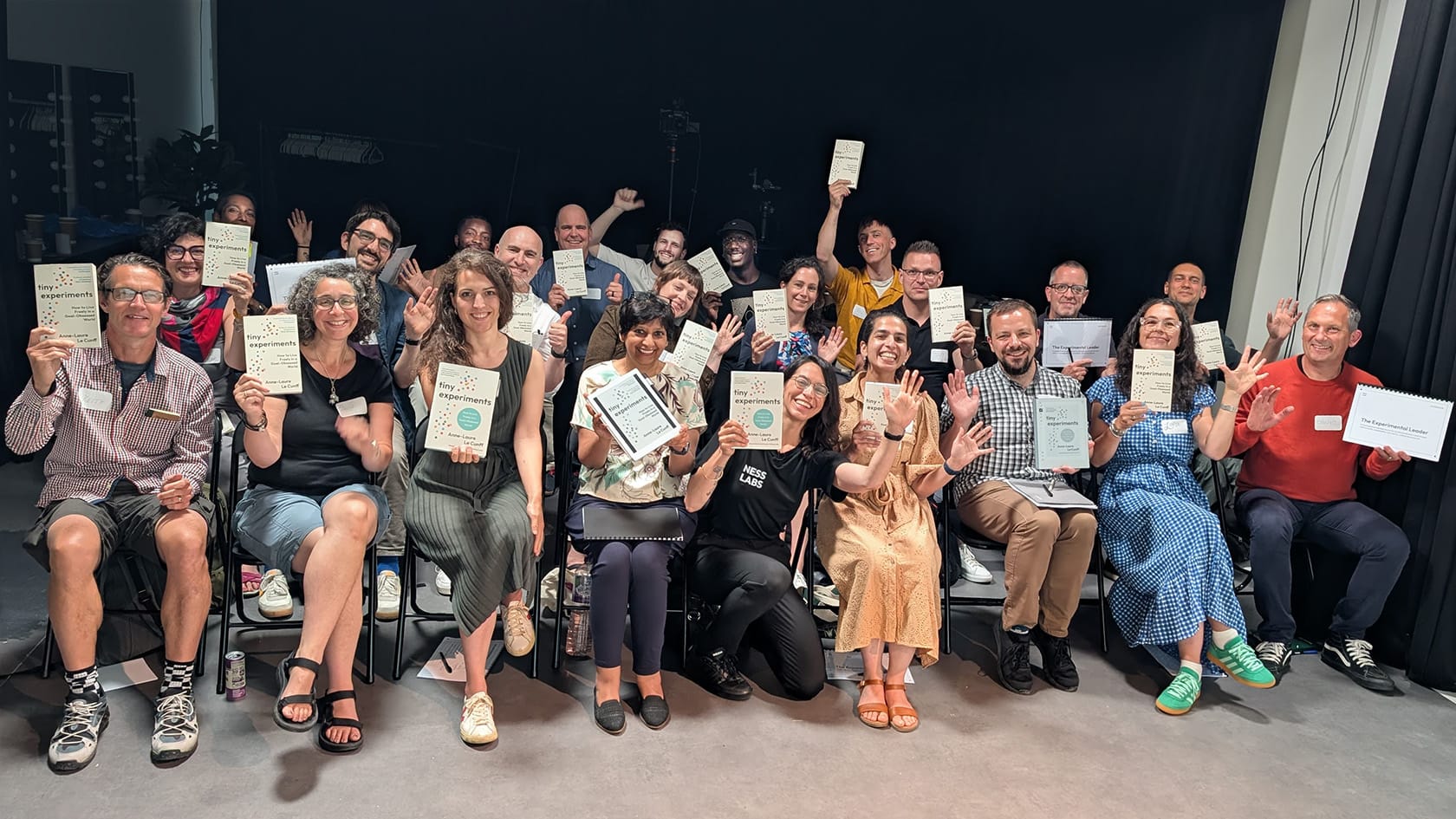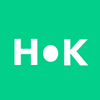🔶 #27: "Mission before monetization: Growth rooted in purpose"

Hello and welcome back to the News Alchemists newsletter!
It's with a heavy heart that I report to you that, unfortunately, clickbait works.
The second most-clicked link in last week's newsletter was the cryptic postscript about a 'very cool' non journalism-related event I attended the week prior. If that's how things work around here, I'm only gonna tell you next week what the first most-clicked link was... just kidding, it was my beloved News Alchemists Venn diagram 🧡
(Clickbait aside, The Experimental Leader event really was quite cool. Keep reading after the seven links if you want to know more about it.)
In today's seven links, we pick up the conversations from two weeks ago on reframing news avoidance (links ❶ and ❷), and on the value of bridge roles and bridge people (links ❸ and ❹).
I also share a project about community and belonging that I've had the opportunity to be involved in over the last six months (❺); an inspiring interview with one of the best people I met this year (❻); and a smart take on onboarding journeys (❼).
I hope you enjoy today's links and find some hope and inspiration in them.
A public service announcement before we say goodbye 👇
I love writing this newsletter. I spend about 15 hours a week searching for useful and (hopefully) inspiring ideas to assist with your work, and putting them together so they're easy and enjoyable to learn from.
I'm not paid to do it though, and as a freelancer that's not sustainable.
I don't want to put up a paywall. Our industry faces incredible challenges, and we need to solve them together. This newsletter should remain free, for you and for anyone else who wants to join the movement.
That's why I chose to explore the sponsorship route, looking for partners who want to support this newsletter because they share its hopeful, people-centric vision.
Can you think of a company or organisation that might want to help keep this newsletter going and free for everyone?
I'd be grateful for any suggestions, introductions or out-of-the-box ideas you're willing to share. Every bit of help counts. Thank you.
See you next week! 👋
1. Audiences are making a rational decision not to consume news products 👉 LINK
As it often happens when I think I'm saying something original, I find out that 🧞Shirish Kulkarni said it already. That's how much influence Shirish has on my understanding of our industry's core issues (not for nothing he was one of the OG news alchemists). Last week, Shirish joined the LinkedIn conversation on news avoidance that I talked about in #25, and shared this piece he wrote in 2023.
"I am not convinced 'news avoidance' is even the right term. It puts the blame on users, implying that they are not engaging because they are not interested or they find the reality of the news too 'raw'. However, people desperately crave information that orientates them in the world and helps them understand it. [...] They are making a rational decision not to consume our products. That failure is on us, but it also means there are opportunities to address that frustration – largely by telling different stories in different ways."
2. Blaming the public is the easiest way to avoid the harder question: how do we need to change? 👉 LINK
Also in #25, I shared a comment by 🧞Belle de Jong that really resonated with me, and that's also quite in tune with Shirish's words: "If our stories do not reach and inform people, that probably means we are failing to adapt, not that they are." In this post, Belle expands her original point – and she doesn't pull any punches: "That refusal to self-reflect is the main mistake mainstream media make in trying to tackle mistrust and news avoidance. People are not too ignorant to understand journalism. Many journalists are too self-absorbed to ask why readers are tuning out." Let's pledge together not to be those journalists.
3. Strategic clarity, an end to silos and audiences-centricity: why you need audience practitioners and product people 👉 LINK
A love letter by 🧞Khalil A. Cassimally to the ultimate bridge people in news organisations – audience and product practitioners – and three reasons why they deserve to be celebrated. Great read.
4. The ability to bridge disciplines will be crucial for the future of media. 👉 LINK
Bridges, bridges, more bridges! A thoughtful post in which 🧞Annika Ruoranen (another OG news alchemist) reflects on her own career as a translator across different languages and disciplines, all in service of the customer experience: from reporting to audience research, and then in leadership roles, product development, service design, and now AI.
"To maintain sustainable media business, we must connect technology with customer experience, legal considerations with audience research, and corporate strategy with newsroom operations. We need not only specialized interpreters but also professionals who move comfortably between different languages and work."
5. Turning casual visitors into committed community members, with a little help from AI 👉 LINK
This is from yours truly. I wrote a post to share an article recently published by JournalismAI about 'Revenue360', an exciting project I've been working on with the 🧩 Daily Maverick over the last six months.
6. Mission before monetization: Growth rooted in purpose 👉 LINK
Last week in this newsletter, I shared an interview I had done with my friends at House of Kaizen. On the same day, they published another interview, this time with 🧞Fran Beighton, who is head of growth at Daily Maverick, and the person I'm working most closely with on the Revenue360 project I just mentioned.
This interview is so good, you will want to listen to it twice (like I did). Fran's passion for journalism's public service mission is contagious, and her commitment to creating value for their community to deliver on that mission is inspiring. Plus, she coordinates the work of a team that is pretty freaking smart at turning that passion and purpose into an effective strategy for sustainable growth.

7. The New York Times' new onboarding journey tells you exactly what's valuable to their strategy 👉 LINK
🧞Madeleine White breaks down the new onboarding journey for new subscribers of 🧩 The New York Times, expertly highlighting what it says about the type of engagement that defines a valuable subscriber for them.
Alright, let me finally tell you about that cool event I attended
Hello curious mind! It's good to talk about something other than journalism from time to time, right? That's what I thought when I decided to spend a full day with 20 strangers at the live recording of an upcoming online course by neuroscientist Anne-Laure Le Cunff, author of the Ness Labs newsletter (one of the best ones I signed up to this year) and of the book 'Tiny Experiments: How to Live Freely in a Goal-Obsessed World' (which I just bought and will read soon).

I don't know you but I am acutely aware of my often unhealthy approach to goals and to-do lists, and I already talked about struggling with procrastination in a previous edition of this newsletter. Anne-Laure's work is giving me some hope that I can develop a better relationship with productivity, better habits in my working days, and ideally live a less stressful freelance working life.
One tiny experiment I'm testing these days is what I call 'mindful transitions'.
Working freelance / as an independent consultant (or 'solopreneur' if you like the term) means always working on different projects at the same time (currently three for me, including this newsletter), each one of them made up of a number of different tasks and roles to perform.
The context switching takes a heavy toll on me, leading to distractions and a crowded brain that thinks and worries about a million to-dos and responsibilities at the same time.
Enter the mindful transitions: these days I am trying to be more mindful of what happens and how I feel in all those tiny moments when I switch from one task to another. I write that down on paper and give my brain a little bit of breathing time in between tasks or before changing professional hats.
Sticking to a new habit is never easy from day one, but when I do stick to it, I'm already noticing the benefits. Check in with me in a couple of weeks 😉
What new habit has made the biggest positive impact on you in recent years? Let me know by replying to this email.
📸 The header image is not connected to the content of the newsletter. Just a photo taken by me to add a little colour.



Member discussion